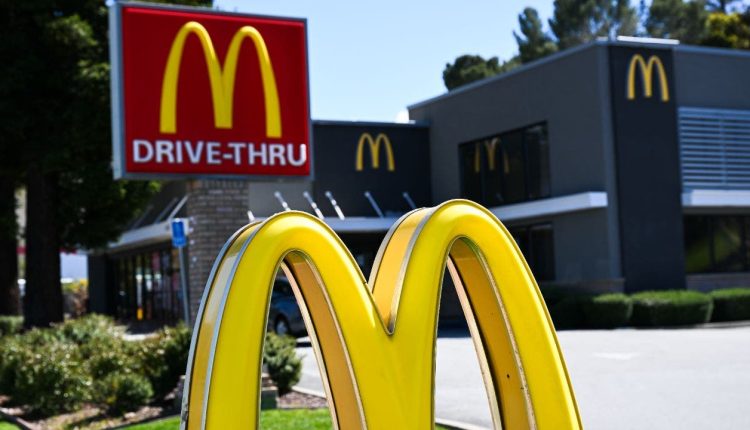McDonald’s is suing multiple meat companies on accusations they colluded to inflate the price of beef specifically.
The fast-food giant on Friday filed a federal complaint against Tyson, JBS, Cargill and National Beef Packing Company, as well as their subsidiaries, alleging the companies engaged in a price-fixing scheme for beef.
The meat companies are accused of anticompetitive measures, including collectively limiting supply to raise prices and charging “illegally inflated” amounts, according to The Associated Press.
The alleged collusion led the beef market to become “a monopoly in which direct purchasers were forced to buy at prices dictated by [the meat packers],” the lawsuit says, adding that the injury it has suffered as one of the buyers is what “antitrust laws were designed to prevent.”
MAJOR MCDONALD’S FRENCH FRY SUPPLIER CLOSES PLANT IN WASHINGTON, SLASHES JOBS AS INFLATION CONTINUES
McDonald’s claims that the meat packers began colluding at least as early as January 2015, and that the practice is ongoing. The suit says the meat companies violated a federal antitrust law called the Sherman Act.
The companies have previously faced federal probes and allegations of price fixing.
Various lawsuits have been filed over the years by grocery stores, ranchers, restaurants and wholesalers. Some litigation is still pending, but meat packers and processors have previously settled cases.
MCDONALD’S SWAPPING PROTEIN IN ‘HIGHLY ANTICIPATED’ SANDWICH DROPPING NEXT WEEK
JBS agreed in 2022 to a $52.5 million settlement in a similar beef price-fixing lawsuit. A year earlier, Tyson agreed to pay $221.5 million over class-action claims that the company intentionally inflated the price of chicken.
These settlements did not include admissions of wrongdoing.
Meat processors have previously argued that larger supply and demand factors that are out of their control caused prices to increase and that they have not engaged in anticompetitive behavior. For example, meat processing plants were sometimes closed during the height of the COVID-19 pandemic, and the industry has also faced labor shortages that were worsened during the pandemic.
But lawsuits like the latest one from McDonald’s cite increased profit margins during the alleged time of collusion and argue that overall concentration of the market helps facilitate collusion.
“Conspiracies are easier to organize and sustain when only a few firms control a large share of the market,” the McDonald’s lawsuit says.
Data in recent years has showed that Tyson, JBS, Cargill and National Beef control more than 80% of the U.S. beef market combined, according to the lawsuit.
McDonald’s is seeking a trial by jury.
The Associated Press contributed to this report.
Read the full article here

